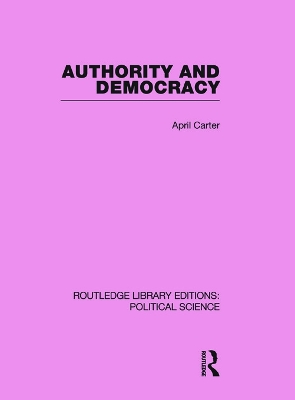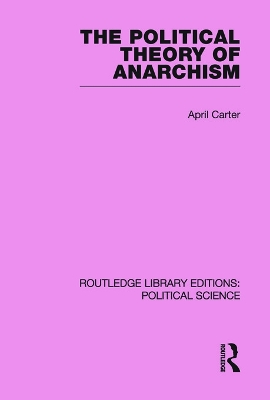Routledge Library Editions: Political Science
3 primary works
Book 5
This book debates the nature and functions of authority: it examines how far our inherited images of authority derive from an aristocratic and traditional order and considers which models of authority are still relevant in a democratic and rationalist society. It discusses the characteristics of the authority relationship, whether political authority differs from other kinds of authority, how authority relates to power and whether authority should be distinguished from the concept of legitimate rule.
The latter part of the book explores the relevance or irrelevance of authority in contemporary society. In particular it examines recent libertarian arguments for the rejection of all forms of authority and the special problems of creating and maintaining authority after revolution.
Book 6
This study focuses primarily on the nature of "direct action" in relation to contemporary movements, and considers the role of direct action methods in past campaigns for constitutional and social rights. Boycotts, sit-ins, obstructions, civil disobedience and other unconstitutional forms of protest are examined to see whether they necessarily lead to violence. The political conditions which encourage violence and the effects of various type of violent action are also discussed. The theoretical issues raised by direct action in a parliamentary system are also discussed.
Book 51
The Political Theory of Anarchism Routledge Library Editions: Political Science Volume 51
by April Carter
Anarchism is a significant but relatively neglected of political thought. April Carter examines the anarchist critique of the state, of bureaucracy, of democratic government and contrasts this attitude with more orthodox political theory. She also considers anarchist theories and social and economic organization, the relevance of anarchism to contemporary conditions and the problems of idealism in politics.


